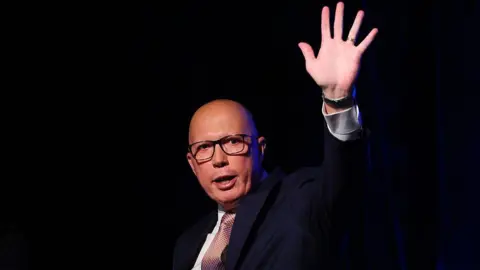Peter Dutton’s defeat in the 2025 Australian federal election marks a historic moment—not just for the Coalition, but for the political heartland of Queensland that once backed him fervently. In a stunning upset, the former Liberal Party leader lost his own seat of Dickson, signaling a deeper shift in voter sentiment and coalition politics nationwide.
The Fall of a “Queensland Stronghold”
Dutton’s political foundation was deeply tied to the Moreton Bay region, a fast-growing area just north of Brisbane. Once described as filled with “quiet Australians,” it became the epicenter of Labor’s surprise surge in 2025. Despite Dutton’s personal and familial roots in the area, voters turned away—many citing the “Dutton effect” as the reason for their change.
For the Coalition, the loss in Queensland was catastrophic: Labor picked up nearly as many seats in Queensland as in the rest of the country combined. In Dickson, the seat that Dutton held for 24 years, Labor’s Ali France achieved the unprecedented feat of unseating an opposition leader at a general election.
Younger Voters and Women Led the Charge
Disillusioned by Dutton’s leadership style and policy inconsistencies, a new bloc of younger voters and suburban women proved decisive. Issues like climate action, the Voice to Parliament referendum, and cost-of-living pressures drove many away from the Coalition.
One voter, April, described how Dutton’s rejection of the Voice referendum and his handling of local crises, such as Cyclone Alfred, pushed her to campaign for an independent candidate: “I felt like it was a duty… our responsibility to get him out.”
The “Trump Effect” and the Personality Problem
Peter Dutton’s personality and political tone drew frequent comparisons to Donald Trump, a link voters found unsettling. Conservative voter Sue explained, “People, rightly or wrongly, aligned Dutton with Trump. And that’s very negative for just about any sane person.”
Many voters noted that while Dutton may be well-known, he is not necessarily well-liked. Nurse and swing voter Aleysha pointed out that Dutton didn’t appear to empathize with everyday Australians: “He doesn’t put himself in the people’s shoes.”
Policy Missteps and Instability
In the lead-up to the election, Dutton’s campaign flip-flopped on key issues—public sector job cuts, remote work policies, and electric vehicle taxation. The mixed messaging contrasted poorly with the strong, stable image he aimed to project.
According to political analyst Dr. Frank Mols from the University of Queensland, these optics alienated not just progressive voters but also moderates and centrists who might have otherwise supported the Coalition.
Queensland: Political Wildcard Once Again
Queensland has a long history of swinging elections—from Kevin Rudd’s 2007 victory to Scott Morrison’s 2019 “miracle.” The 2025 result reaffirmed its status as a wildcard state, especially given the volatile nature of its electorate—where over half the population lives outside the capital city and political fragmentation is more pronounced.
Conclusion: A Liberal Loss, Not a Labor Love-In
Despite Labor’s strong performance, the outcome was less about a sweeping endorsement of Anthony Albanese and more a rejection of Peter Dutton’s leadership. As Dr. Mols notes, “This is more of a Liberal loss.”
For the Coalition, rebuilding trust in places like Queensland will be crucial. For Labor, the challenge will be turning these gains into lasting support in a state historically resistant to red tides.
Additional reporting by Kelly Ng. Read more on how Albanese staged a political comeback in 2025.


